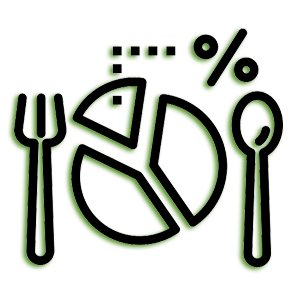
27 Oct THE PERFECT DIET: DOES IT EXIST?
My patients often ask me, out of all the possible options, what is the perfect diet? It’s an interesting question, and my usual answer is that while there is no one perfect diet for everyone, the latest research is starting to suggest that there may be a perfect diet for each person and that it varies from one person to the next.
Over the past three years, advances in genetic testing have led to a better understanding of why there doesn’t seem to be a one-size-fits-all perfect diet for weight loss.
While we are a ways off from being able to run a simple genetic test and prescribe the perfect diet based on the results, in general, we’ve found that one of the following approaches will work better for an individual than the others. So while we wait on a definitive test, it is possible to determine your best diet fit with some trial and error.
The four basic types of diets are:
Low-Fat: The name of this plan can be misleading because its aim is really to lower saturated (animal) fats, not unsaturated (healthy) fat. In short, fat has 9 calories per gram versus the 4 calories per gram found in carbohydrates and protein. For many people who struggle with their weight, eating too much fat (and calories) is the source of the problem. For these people, cutting back on fatty meats, cheese, fried foods, and other high-fat foods is the answer.
Low-Carb: For other people, carbs not fat seem to be the source of their weight struggles. These people tend to eat a lot of refined carbs such as white bread, pasta, cakes, cookies, and the like. Eliminating these simple carb foods can help reduce cravings and balance blood sugar levels. Cutting back on breads and other high-carb foods also tends to reduce overall calorie intake, as such foods can contain a surprising number of calories even in small portions.
Hybrid: For other people, both carbs and fat intake are the problem. In this case, cutting back on both bad fats and refined carbs while increasing lean protein, healthy fats, and complex carbs proves to be the perfect diet approach. Doing so helps these folks balance their blood sugar levels, reduce cravings, and cut out foods that are high in calories at the same time.
Mediterranean: Similar to the hybrid plan, a Mediterranean-style diet favors fresh whole foods prepared as simply as possible. Fish, beans, vegetables, whole grains, and fruit make up the majority of the plan, with very little or no red meat or refined carbs. The result is a filling, satisfying diet naturally low in calories.
At The Center for Medical Weight Loss, we work with each individual patient to unlock his or her unique weight loss puzzle, analyzing what has led to weight gain and then deciding which of these four basic plans or a combination of them is as close to a perfect diet option for that person as possible!
In addition, we teach our patients how to rethink their approach to eating and eliminate problem behaviors such as skipping meals, binge eating, trigger foods, and the like. We’ve found this approach, combined with a focus on overall calorie intake and the person’s basal metabolic rate, can lead to quick, safe, and long-term reduction of fat without triggering the body’s starvation response, a problem with many fad or yo-yo diets.


